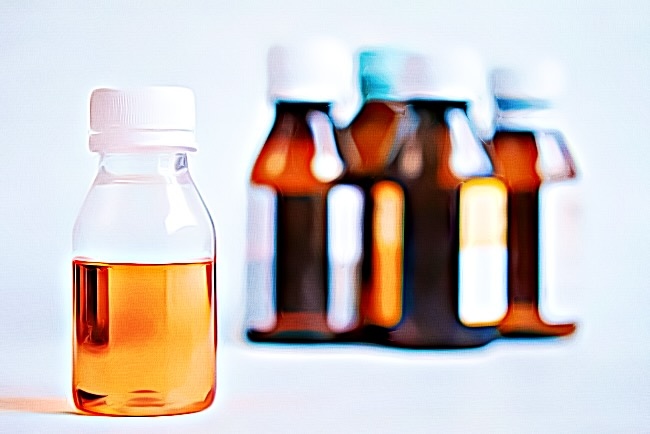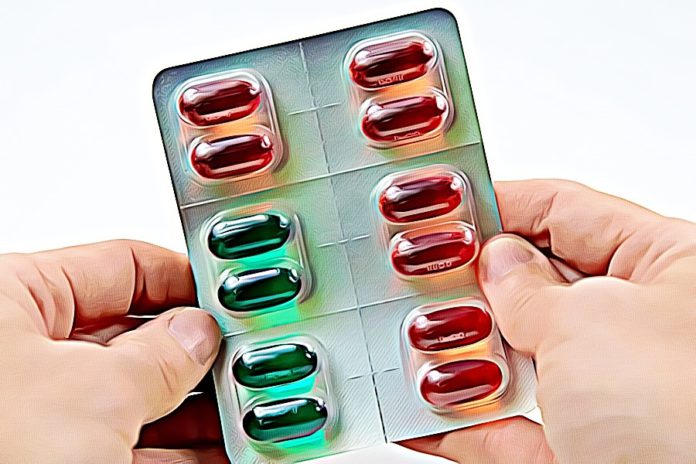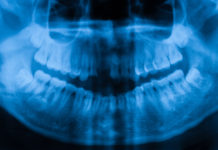When the mood to let loose and drink strikes, consuming moderate amounts of alcohol can be a great way to relax and have some much-needed fun, but what if you also came down with the common cold? It’s always tough when you’re feeling under the weather, but it’s even tougher when you’re trying to enjoy a night out with friends.
If you find yourself in this predicament, you may be wondering if it’s okay to take DayQuil to help ease your symptoms and allow you to continue on with your evening.
Ultimately, it’s not a good idea to mix alcohol and medication, so you should probably avoid taking DayQuil if you’re planning on drinking. DayQuil is a type of medication known as an over-the-counter (OTC) cold and flu remedy, and it contains ingredients that can help relieve symptoms like fever, sore throat, and congestion.
On its own, DayQuil is a reliable drug that can soothe your flu, but when combined with alcohol, it can be a fatal duo that can compromise your well-being in more ways than one.
DayQuil and Alcohol: What Happens When You Mix the Two Substances?
It’s no secret that alcohol and medication don’t mix. In fact, mixing alcohol with any medication can be a dangerous and even life-threatening proposition. This is especially true for DayQuil, as it contains a combination of ingredients that can interact dangerously with alcohol. Acetaminophen, for example, is a pain reliever that can cause liver damage when taken in large doses or when combined with alcohol.
Dextromethorphan is a cough suppressant that can cause drowsiness and impaired coordination, both of which can be dangerous when combined with alcohol. And pseudoephedrine is a decongestant that can raise blood pressure and heart rate, again increasing the risks when combined with alcohol.
Alcohol, on the other hand, is a central nervous system depressant. When alcohol and medication are mixed, the effects of the medication are increased. This can lead to serious side effects, including the following symptoms:
- Fever
- Joint pain or swelling
- Chills
- Excessive tiredness or weakness
- Unusual bleeding or bruising
- Loss of appetite
- Nausea and vomiting
- Yellowing of the skin and whites of the eyes
To that end, should you take DayQuil and alcohol together? The short answer is that it’s not a good idea. The combination of ingredients in DayQuil can interact dangerously with alcohol, and the results can be potentially life-threatening. If you’re taking DayQuil, it’s important to avoid alcohol altogether.
What is DayQuil?
DayQuil is a medication that is used to relieve symptoms of the common cold and flu. It is available over the counter and does not require a prescription. DayQuil contains the active ingredients acetaminophen, dextromethorphan, and guaifenesin.
Acetaminophen is a pain reliever and fever reducer, while Dextromethorphan is a cough suppressant. Last but not least, Guaifenesin is an expectorant. When combined, these ingredients work together to relieve symptoms such as fever, congestion, and cough.
What are the Dangers of Mixing Alcohol and DayQuil?
Higher Risk for Liver Damage
DayQuil contains a combination of ingredients that can interact dangerously with alcohol. The most notable of these is acetaminophen, which is a pain reliever and fever reducer. Acetaminophen is also found in other over-the-counter medications, such as Tylenol. Alcohol can increase the risk of liver damage when taken with acetaminophen.
The liver is responsible for breaking down acetaminophen. When alcohol is present, it can interfere with this process, causing a build-up of acetaminophen in the liver. This can lead to liver damage and, in severe cases, liver failure.

Higher Risk for High Blood Pressure and Heart Rate
Acetaminophen is not the only ingredient in DayQuil that can interact with alcohol. The decongestant pseudoephedrine can also cause problems. Pseudoephedrine can increase blood pressure and heart rate. When paired with alcohol, it can further increase blood pressure and heart rate, which can be dangerous.
Not to mention, other ingredients in DayQuil can also cause other problems. For example, the combination of a pain reliever, fever reducer, and decongestant can mask the symptoms of alcohol intoxication. This can lead to people drinking more alcohol than they should, boosting your risks for alcohol poisoning.
Acetaminophen- or Dextromethorphan-Associated Risks
Acetaminophen is a pain reliever and fever reducer found in many OTC medications, including Tylenol, Excedrin, and Anacin. Acetaminophen is generally safe when used as directed.
Meanwhile, alcohol can make it more difficult for your body to process acetaminophen. This can lead to higher levels of acetaminophen in your blood, increasing the risk of liver damage and acetaminophen poisoning.
Another ingredient that can cause debilitating side effects when combined with alcohol is Dextromethorphan, an active ingredient DayQuil that serves as a cough suppressant.
Dextromethorphan can cause drowsiness, so drinking alcohol while taking this medication can increase the risk of drowsiness and make it more difficult to concentrate. This can be extremely dangerous, particularly if operating machinery or driving. With that in mind, symptoms of DXM overdose include:
- Drowsiness
- Confusion
- Loss of coordination
- Slurred speech
- Dizziness
- Nausea
- Vomiting
- Diarrhea
- Rapid heartbeat
- High blood pressure
- Agitation
- Anxiety
- Hallucinations
- Seizures
- Coma
As for the general signs of alcohol and DayQuil overdosing, be on the lookout for the following:
- Hallucinations
- Confusion
- Excessive drowsiness
- Delusions
- Paranoia
- Dizziness
- Nausea
- Vomiting
- Abdominal pain
If you or someone you know has mixed alcohol and DayQuil, it’s important to seek medical help immediately. The sooner treatment is received, the better the chances of a full recovery.
What are the Short Term Effects of Mixing DayQuil and Alcohol?
Drowsiness: For starters, both alcohol and cold medication can cause drowsiness. This means that when you mix the two together, you’re likely to feel even more tired than you would if you just took one or the other. In addition, alcohol can make it harder for your body to process the medication, which can lead to an increased risk of side effects.
Dehydration: Alcohol is a diuretic, which means it can cause you to lose more fluids than you take in. When you mix alcohol with a medication that can also cause dehydration, like DayQuil, you’re even more likely to become dehydrated. This can lead to headaches, dizziness, and even nausea and vomiting.
Impaired judgment: When you’re under the influence of alcohol, you’re more likely to make poor decisions. This is a problem when you’re taking medication that can cause drowsiness and impair your judgment. It’s even more of a problem when you mix the two together.
Increased risk of accidents and injuries: When you mix the two together, you’re more likely to feel tired and make poor decisions, both of which can act as a recipe for disaster as they put you at a higher risk of accidents and injuries.
Conclusion
It’s never a good idea to mix alcohol and medication, and that includes the common cold and flu medication DayQuil. While it’s tempting to reach for a drink to ease your cold symptoms, the combination of alcohol and DayQuil can be dangerous.
Alcohol can increase the risk of side effects from DayQuil, including drowsiness, dizziness, and gastrointestinal problems. It can also make it harder for your body to fight off the virus, prolonging your illness. So next time you’re feeling under the weather, reach for a glass of water or hot tea instead of a cocktail.
With all that in mind, if you know someone who is taking DayQuil and drinking alcohol, make sure to tell them the risks. It’s not worth risking their health for a few drinks.
Sources:
https://nida.nih.gov/publications/drugfacts/over-counter-medicines
















